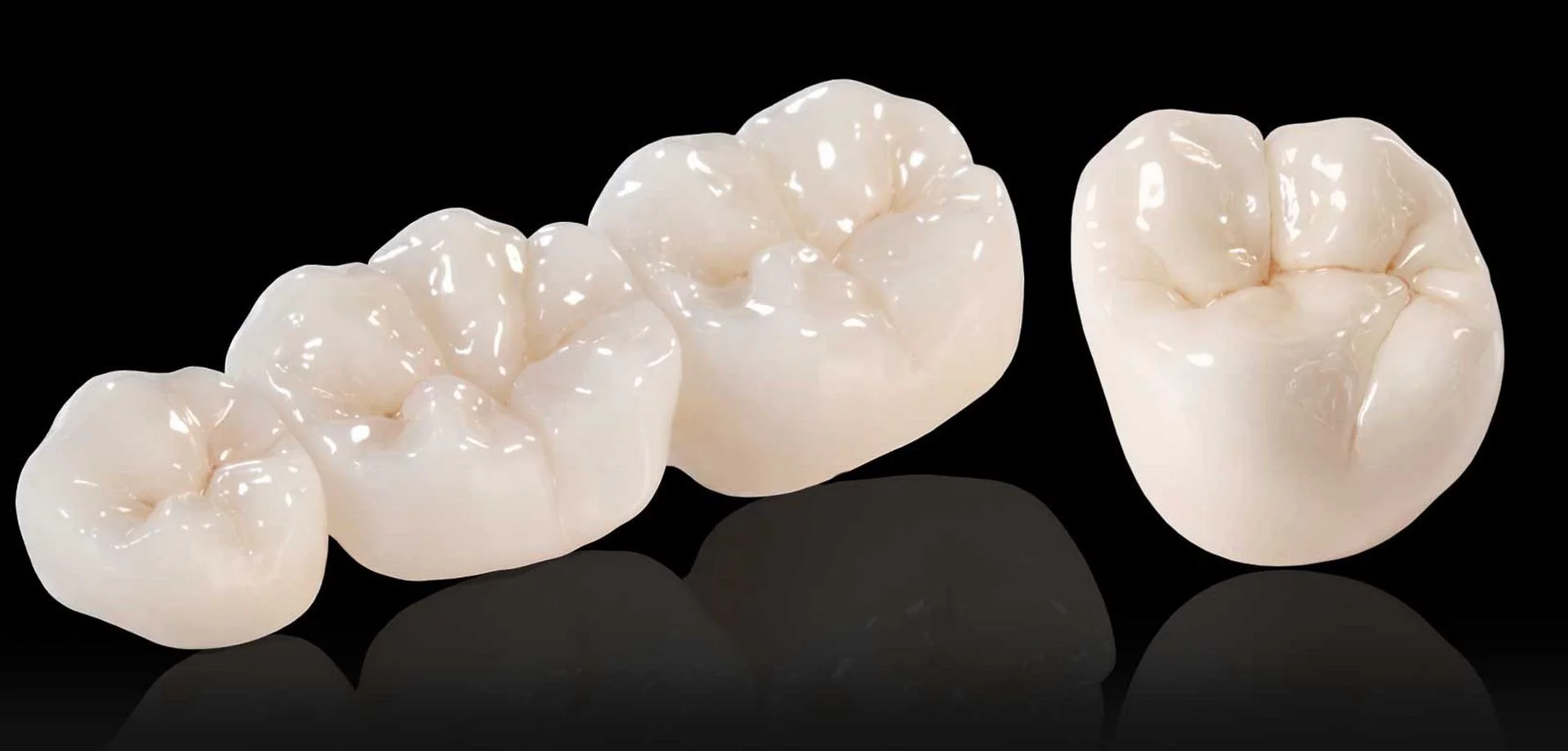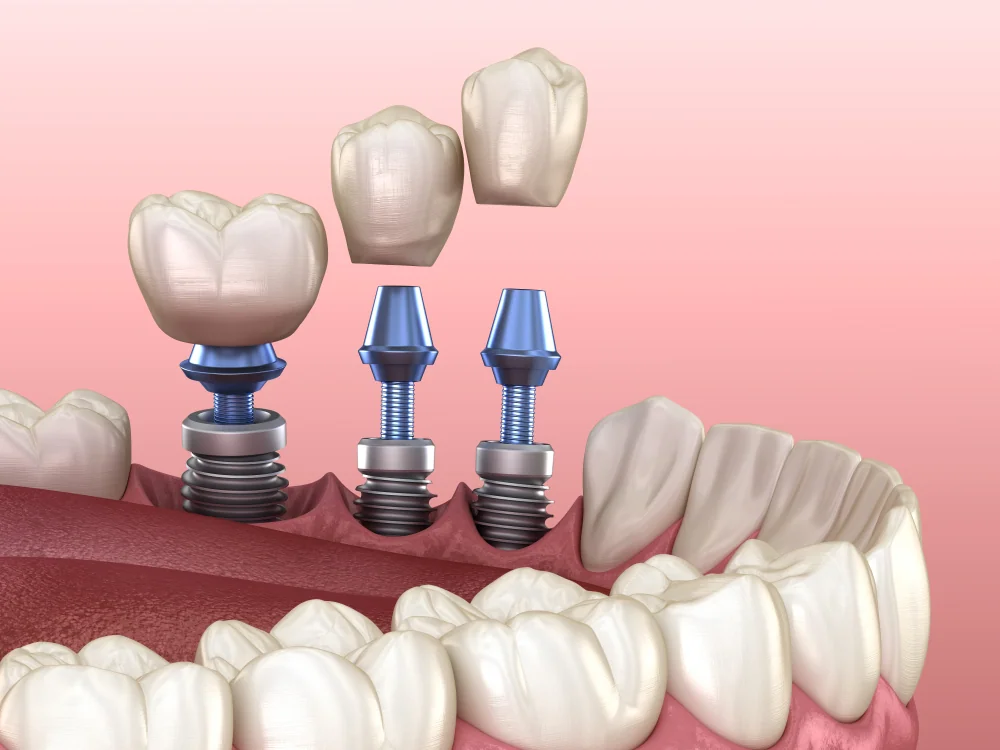Dental Crowns: Considering the Costs, Procedure, and Type Suitable for You
- Posted on Nov. 7, 2023
- Health
- Views 116
Dental crowns are widely favored in the USA, fixing a range of dental problems. However, the cost can deter some petients. Let's explore the average price range and more affordable alternatives.
Read More

What is a Dental Crown and Who Needs Them?
Dental crowns, often called "caps," are tooth-shaped covers that a dentist places over a natural tooth or an artificial tooth root. They serve to conceal misshapen, discolored, or damaged teeth, offering a lasting solution to restore their usual size and shape. Dental crowns can also act as protective shields for weakened teeth after procedures like fillings. In this way, they enhance both the appearance and functionality of the treated tooth.
What Materials Are Used?
Dental crowns come in various materials, some of which can be customized to match the appearance of the replaced tooth. The choice of material depends on factors like the crown's location, its role, the color of nearby teeth, and your budget. Dentists often select materials based on individual preferences and needs.
Common dental crown materials include:
- porcelain;
- ceramics;
- metals – gold, stainless steel, or nickel;
- composite resin.
Onaedo Achebe, a founder of Minti Oral Care says: “Zirconia is a porcelain material that is most commonly used for the back teeth due to its strength. E-max (a type of ceramic) is most commonly used for front teeth because of its more natural look.”
Reason to Install the Crowns
A dental crown might be suggested by your dentist for various reasons, such as:
- Supporting a tooth with a big filling.
- Safeguarding a cracked tooth.
- Protecting a tooth after a root canal.
- Filling the gap left by a missing tooth.
- Enhancing the look.
- Covering a dental implant.
- Holding a dental bridge securely.
As Dr. Gary Liu, a dentist from Southern California, explains, “One of the main reasons people need dental crowns is because a cavity has eroded more than 50% of the tooth, so a crown is used to replace the missing tooth structure.”
How the Procedure Works
The dental crown procedure typically involves two visits, though some dentists can make crowns in-house. During the first visit, the dentist numbs the area and shapes the tooth to support the crown. Sometimes, a root canal is needed if there's decay or risk of infection.
An impression of your teeth is taken and sent to a dental lab for a custom-made crown. While the main crown is in process, you may receive a temporary cap to protect your tooth while waiting. Later, the permanent crown is cemented in place.
Side Effects to be Prepared For
Once the final crown is in place, watch for potential side effects like:
- Sensitivity to hot and cold food.
- Gum irritation.
- Gum recession at the crown site.
- Crown damage or chipping.
- Persistent soreness.
- Loose crown.
- Discoloration of certain crown materials over time.
If you encounter any of these issues, consult your dentist to ensure proper fit.
Crowns Service Life
Dr. Liu says, “A dental crown can last from five to 20 years depending on how it’s cared for, as well as the various habits and diet of the person.” Proper maintenance, like regular brushing and flossing, can ensure a cavity-free, long-lasting crown. The price of a crown also influences its longevity, so careful consideration is important.
The Cost of Dental Crowns
Dental crown cost can vary, typically falling in the range of $500 to $2,500 per crown, influenced by the crown material. Additional expenses like exam fees or x-rays may apply.
Factors affecting your cost include the dentist's location and expertise, the extent of prep work needed, and Insurance coverage. Unlike veneers and other cosmetic procedures, crown installation may be covered by your dental insurance or even considered an “out-of-pocket cost” by standard insurance.
Different crown materials also affect prices:
- gold crowns: $600-$2,500;
- all-porcelain crowns: $800-$3,000;
- porcelain-fused-to-metal crowns: $500-$1,500;
- zirconia and E-max crowns: approximately the same as all-porcelain crowns.
How to Understand That I Need Dental Crowns?
Regular six-month dental checkups and cleanings are crucial, especially if you have a crown. If you observe crown damage, wear, or looseness, or experience heightened sensitivity, tooth pain, or swelling near the crown, contact your dentist promptly. These signs may indicate complications requiring professional evaluation.
Dental Crowns Alternatives: Cheaper Options for Your Teeth
Dental crown cost is relatively pricey for most US citizens. If you struggle with payments, try cheaper alternatives with the same functions:
- Traditional veneers. These are thin, tooth-colored shells that cover various imperfections. Composite resin veneers cost around $250 to $1,500 per tooth and last five to seven years. On the other hand, porcelain veneers last 10 to 15 years with the price about $925 to $2,500 per tooth.
- Snap-On veneers. Ideal for cosmetic issues like chipped or stained teeth, they are a non-invasive alternative to crowns. You can make a mold at home with an impressions kit and receive custom veneers by mail. They fit over your teeth like a mouthguard, enhancing your smile. At around $570 for a full set, they are cost-effective and last one to five years.
- Dental onlays or partial crowns. Dental onlays, repairing tooth cavities and damage like crowns, target the cusps on top of teeth. They typically cost $650 to $1,200 per tooth, lasting 5 to 15 years.
- Dental inlays. Like onlays, dental inlays restore cusps on the chewing surface. Costing a similar $650 to $1,200 per tooth, they are a durable and lasting option.
- Dental bonding. Finally, for cosmetic improvements and minor dental issues, try bonding. It involves applying tooth-colored resin to your teeth, typically costing $100 to $400 per tooth. It's less extensive and lasts 3 to 10 years.
Modern medicine provides a wide range of dental procedures to fit various budgets. Don't hesitate to explore your options carefully to address your dental needs with confidence.


